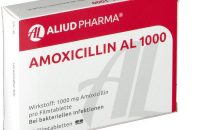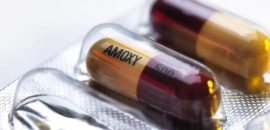Can Antibiotics Affect Menstruation?
The female reproductive system is very sensitive to any intervention. All women are worried about how antibiotics may affect menstruation, especially those who are forced to take such medications for a long time. But experts say that this criterion has no value in assessing the impact on the menstrual cycle and the reproductive system.
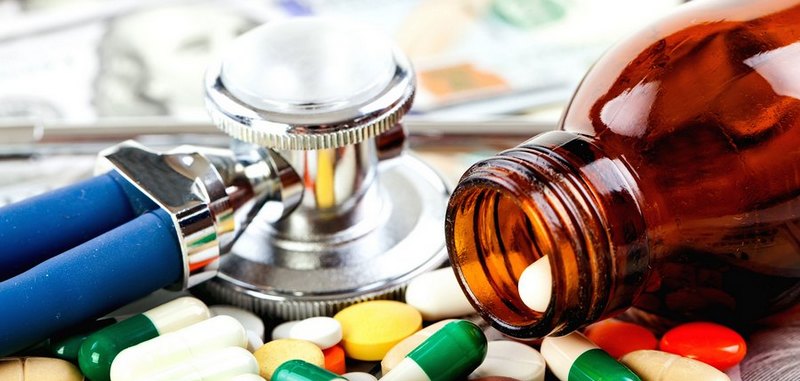
Antibiotics Therapy and Menstruation
Delayed menstruation during antibiotics treatment can be caused by several reasons:
- Infection itself. The drug is prescribed for diseases that are triggered by extraneous microorganisms. They cause inflammation, sometimes purulent process in tissues. If it affects the reproductive system, it is likely that doubts, whether menstruation will be interrupted by antibiotics, are unnecessary. Because violation is caused by inflammation that triggered hormonal disorders;
- Surgery. Sometimes antibiotics are prescribed after surgery as a preventive measure, as in this case probability of catching infection is very high and undesirable. Delay may be caused by stress associated with surgery, stress situation and hormonal disorders, provoking it;
- Pregnancy. Menstruation disorder because of antibiotics may be caused by a decrease in hormonal birth control pills effectiveness. In case of diarrhea, contraceptives don’t have time to be absorbed by the body and have the proper impact. And woman believes that ovulation, thanks to them, did not come, which means that she is safely protected from pregnancy. Although in reality, this may not be so also because oral contraceptive components properties have to be inhibited by some antibacterial agents;
- Stress. Many women are forced to combine antibiotics and menstruation when preparing for hysteroscopy or another type of survey. Their doctor prescribes antibiotics to prevent infections occurrence after them. These medical manipulations and their reasons can cause anxiety that manifests in hormonal malfunctions and cycle disorders.
The Duration of a Menstruation Cycle after Antibiotics Therapy
If a woman is prescribed infectious disease treatment, the doctor usually warns that subsequent delay in menstruation after antibiotics is possible. The drugs are intended to cope with disease-causing bacteria that may settle in different systems of the body. But useful microflora also suffers from their effect. It is known that bacteria are present in the vagina, which is part of the reproductive system. Although this body does not directly affect the menstrual cycle, impact on its microflora will reflect on adjacent organs – uterus and ovaries. Impact on the latter may be caused by slow germ cell maturation.
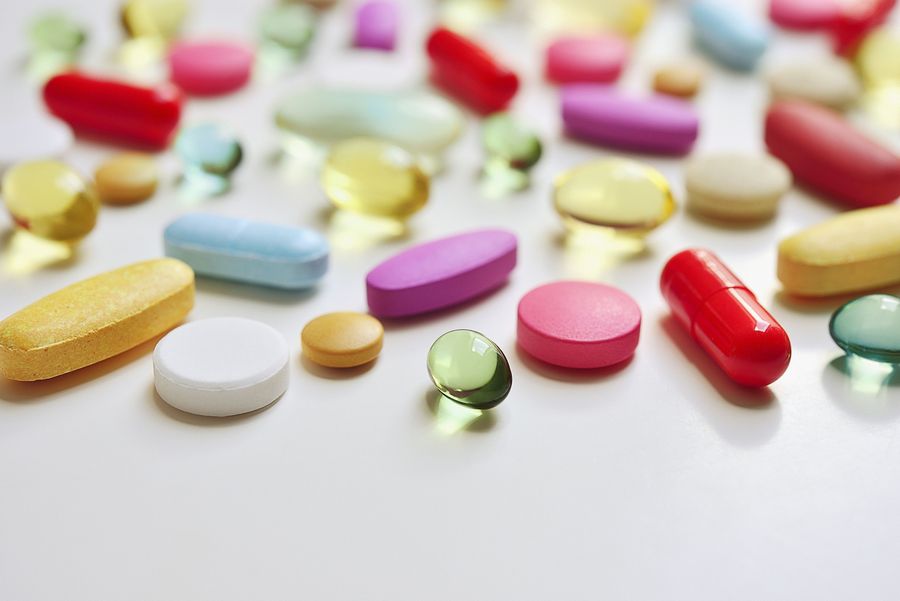
Delayed menstruation after taking antibiotics as the cause of its slow maturation has a violation of processes occurring in the central nervous system. Powerful drugs can slow them down. And central nervous system affects pituitary function, i. e. hormone production. In this chain others producing them, bodies are also included. This causes a slowdown in FSH, LH, estrogen and progesterone production, which are indispensable for the normal development of egg and endometrium. Menstruation can be delayed for some time.
It happens that in patients receiving antibiotics menstruation can come earlier than usual. But do not blame the drugs. Most likely, the reason was inflammation, for which they were recommended.
Is it Safe to Take Antibiotics During Menstruation?
In connection with all the above, many may begin to doubt whether it is allowed to take antibiotics during menstruation, just because they can interrupt cycle. But if there is a need, menstruation is not an obstacle to the treatment. In this case, infection is more dangerous for hormonal background than antibacterials.
When inflammation has affected reproductive organs, antibiotics during menstruation may be more timely, than if to wait for menstruation to end. The body is going through turnover that helps to cleanse mucous membranes, subsequent recovery.
The question whether antibiotics are allowed during menstruation can arise when local treatment with suppositories or solutions is necessary. Here, in some cases, it makes sense to wait until menstruation. Discharges may prevent mucosa from absorbing active substances to a full extent. Small doses, which will be absorbed, will help bacteria to adapt to drugs, which will cause chronic infection.
If we talk about benefits that antibiotics can give during menstruation, it is also analgesic effect. Many of these drugs have this property, and during menstruation, it is quite useful. Of course, pain during menstruation cannot be the only indication for their intake. A more serious necessity and doctor’s appointment are needed.
How to Minimize the Negative Effect?
Menstruation will recover faster after using antibiotics if:
- take vitamins and mineral agents. They will help to restore body in general and, therefore, will minimize a bad influence of drugs, contribute to hormonal balance normalization;
- keep to the treatment regimen. Do not voluntarily withdraw medication if you thought you had recovered. Therapy should be brought to the end so that the infection had no chance of recurrence, which is primarily able to interrupt the cycle. But taking medicine prescribed by your doctor longer than necessary is also not recommended;
- take prebiotics and probiotics to return to normal vaginal microflora and maintain body’s immune system;
- consult a doctor in case of a long delay, especially if it is accompanied by discomfort in genitals area. Antibiotics can cause menstruation of very intense character. In this case, medical assistance is needed immediately;
- do pregnancy test immediately after antibiotics therapy.
Menstruation During Antibiotics Therapy
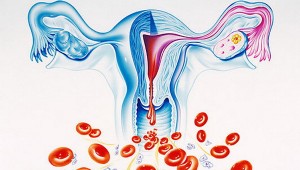 Finding that menstruation is different than in the past, many would like to know whether Canadian antibiotics affect menstruation or they need to look for another explanation. Their impact on discharge properties is similar to the effect on cycle duration. That is, it is very indirect. Mostly these changes are related to:
Finding that menstruation is different than in the past, many would like to know whether Canadian antibiotics affect menstruation or they need to look for another explanation. Their impact on discharge properties is similar to the effect on cycle duration. That is, it is very indirect. Mostly these changes are related to:
- stress that is caused by an infection that requires treatment with antibiotics;
- disease influence on the reproductive system.
Therefore, there is no consistency in what menstruation came after antibiotics. They can be heavy, with clots, last less than three days or longer than a week. If the drug is prescribed for reproductive system inflammatory diseases, menstruation after antibiotics therapy is likely to proceed in a more normal manner than before it.
Brown menstruation after antibiotics is observed in the background of increased blood clotting. Drugs can have such an impact on it. But if they are the reason, secretions consistency should be thicker than usual. Blood longer comes out of genital tract, acidifies, so menstruation obtains such color. But if during the next cycle nothing has changed, the cause of brown menstruation cannot be considered antibiotics. The examination is necessary to find out the reason for this.
Low menstruation after antibiotics means insufficient endometrium development in a late follicular phase of the cycle. Most likely this is caused not by the drugs, but by reasons for which the doctor appointed them, e. i. infection. This is possible also because of stress caused by the disease.
Menstruation, which began after antibiotics, is unlikely to be as usual. But any problems with them and cycle are not necessary to attribute only to drugs influence. It is best not to guess about this and go to doctor and undergo tests to find out the true cause of the disorder. Especially when there are other suspicious signs. Because the most serious hormonal and gynecological diseases can be disguised as a result of antibiotics influence.





